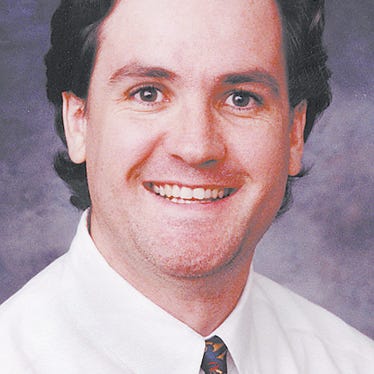
Growers and rural communities are being alerted to budget cuts made by the House that will affect Extension programs and agricultural research. Last week, the House passed a continuing resolution for the 2011 fiscal year that included a $217 million cut for the National Institute for Food and Agriculture (NIFA). Smith-Lever funds – used, among other things, to run 4-H clubs – were cut by $30 million.
The Senate is expected to debate the House’s continuing resolution soon.
The cuts would be difficult enough for land-grant universities and Extension to absorb but are doubly frustrating for officials because of their timing. Adding to the pressure: coming halfway through the fiscal year, the cut to programs (approximately 10 percent) must be made over six months instead of a full year.
On Tuesday, Southwest Farm Press spoke with Paul Coreil at the LSU AgCenter about the budget cuts. Coreil, Vice Chancellor and Director of the Louisiana Cooperative Extension Service, said Congress needs to understand the full impact such cuts will have. Among his comments:
How will this affect the AgCenter, Extension and university research?
“It isn’t a very complicated issue. We’re in the middle of a fiscal year and all the money has been allocated. All the federal funds I get for Extension are in salaries for agents and specialists that are in the field, working today.
“We’ve got to cut 10 percent from there. I don’t know where we’ll get it.
“This was an unexpected mid-year cut. Here we are getting ready for the growing season and we have specialists and agents working with growers – and their salaries are dependent on the federal funds. How do you manage that when you have people hired out in the community working with farmers?
“These are formula funds that we’ve been getting and rely on – they’re recurring. If the cuts have to come, we need time to consider how to implement them. There’s no trick-bag to use when there are people already getting paid those funds. It isn’t like there’s money sitting in a drawer here that I can just send back and say ‘the cut has been made.’
“We work with farmers, ranchers and 4-H programs for kids all over this state. These salary dollars are important. State funds have already been cut drastically and the federal funds are critical.
“And if cuts must be made, they need to be made in a way that makes sense. We don’t need to be sitting here wondering how in the world we’ll send money back after it’s already been dedicated and allocated.”
Can you explain why this came down mid-fiscal year?
“You have to ask congressional membership that question.
“But for a manager trying to run a quality program to help producers and communities, it causes quite a shock to the system. Everyone is starting to understand these cuts will have an immediate impact and the options we have are limited.
“We must work very closely with the congressional delegation so they understand the consequences of this type of a mid-year reduction. We’ve already made commitments.
“The ‘why’ of this, is something I can’t answer. But I can tell you about the consequences. That’s why there’s so much turmoil and concern regarding the timing and lack of planning we’re being provided.”
Where is the pressure to cut mostly coming from?
“From what I read, this is largely a result of the November election and changes that took place in Congress. Regardless of party, though, the message to them is the same: this will have an impact on parishes in Louisiana and other states’ counties that have strong Extension programs.
“The federal funds for Smith-Lever are what we stand on to get matches from our state legislature and local government. We get significant support from the county governments for these offices.
“Everyone needs to step up and do their part – federal, state and local. Of those three legs of the stool, if one makes massive reductions mid-year it shakes everything up. We have a lot of local and state elected officials that are very concerned about this. There’s only around six months left in the fiscal year and the dollars have been dedicated.”
Past cuts and timing
On past cuts, timing and being able to plan properly…
“In the past, reductions have come and we’ve dealt with them. But you need time to reorganize priorities, reduce or eliminate programs and give proper notice to people; make sure the local communities understand the consequences of the cuts. With enough time, those things can be done properly.
“But this move puts us in a very precarious situation. We don’t have a lot of options to make this at least appear to be something we’re doing with organization and a lot of thought.
“There’s a lot of concern in the calls I’m getting from constituents and ag leaders on this. I’m sure they’re making their views known to the congressional delegation, as well.”
Have you gotten any response from the Louisiana or Mid-South delegation on this? Or is it still early days?
“It’s still early. The vote on this was only taken last Friday (Feb 18).
“But I think the constituency is letting them know of their concerns. And it’s being expressed, I think, widely.
“Hopefully, by March 4, something a bit more workable will arise.”
Have you been in contact with your counterparts in neighboring states?
“Yes, we’ve had conference calls – throughout the country and the South. Everyone has the same dilemma with this mid-year cut.
“The sentiments are the same. We’ve all already reduced our staffs and budgets over the last several years. And we’ve used the federal funds to try and maintain the quality of the Mid-South programs.
“The Mid-South has already downsized and cut to the bone. We’re really down to our base priorities even without this cut.
“The thing concerning a lot of people is these base funds – Smith-Lever for Extension, Hatch Act for research, and a couple of other solid funding lines – are of the highest priority in all states. Those are the acts of Congress that have been providing the base funds we get.
“We match those funds at the local and state level – about six-to-one in Louisiana. And in the other states it’s probably at that level, or higher.
“Again, everyone is doing their part. We use those federal funds to justify and convince local governments and state legislators to give us dollars. It’s been a three-way partnership.”
FY 2012 and the need for research
Any rumblings about the 2012 fiscal year budget that begins in October?
“Yes, we’re hearing rumblings. President Obama has put out his proposed budget and it has a 5 percent cut for research and Extension.
“But because of the debate over the 2011 budget, we haven’t had a whole lot of time to spend on 2012.”
Anything else you want our readers to know?
“The Cooperative Extension Service, the experiment stations and land-grants are dedicated to helping maintain the economic activity in agriculture. I’m very proud to be a part of the land-grants.
“With all the challenges we see -- shortages, lack of stockpiles of corn and commodities appearing that they’ll be so much more important in the coming decades -- we need good research-based information to be applied in the field. That’s a good investment, the basis of a society having a good, abundant, safe, affordable food supply.
“It would be wise for the United States to maintain its leadership in ag production. And research and Extension has made it so secure. But it appears that security is about to become much more of a challenge.
“As there are more and more people, they’ll need more and more food. And as prices go up, we’ll need to be more efficient and have higher yields.
“This is a good investment. And it’s an investment that pays off for everyone.
“We need to rethink how we look at agriculture. It needs to rise to the top as critical to the welfare and stability of our country.
“Congress needs to really think through these cuts. The basis for our quality of life is really an abundant food supply.”
About the Author(s)
You May Also Like






